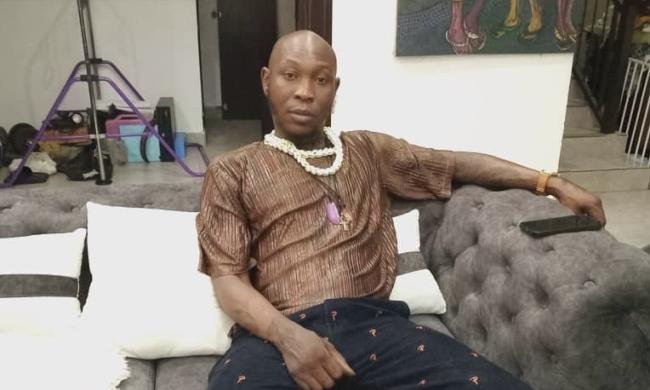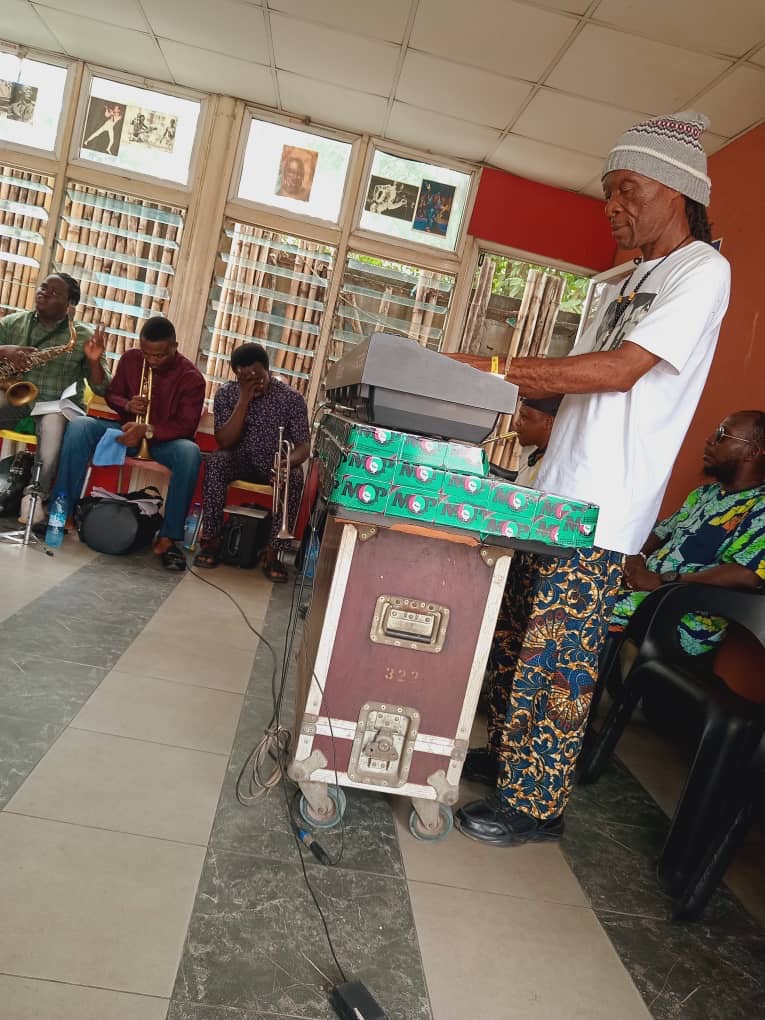
On April 18, 2024, I embarked on a solo journey from the serene city of Ilorin in Kwara State to the bustling Ikeja in Lagos State. You might wonder why I made this trip. Be patient, we’ll get to that.
The journey, though peaceful, was long and exhausting. Starting from the Oke-Odo junction—a bus stop between my school at the University of Ilorin and the Terminus under-bridge—the trip offered a glimpse of Ilorin’s charm. The new bridges built under Abdulrazaq’s administration are certainly worth noting.
It was well past 9:00 p.m. by the time I found a motel about a mile away from the Kalakuta Museum to spend the night. Fortunately, it was affordable, costing just N6,000. The next day, April 19, 2024, at exactly 12:00 p.m., I gathered all my video recording equipment and headed to the Kalakuta Museum in Ikeja for the first time. Though I’d heard many stories about the museum, I wasn’t there to explore it. My focus was on meeting Mr. Seun Kuti, so I skipped the museum tour and instead joined the Egypt 80 band in their rehearsal room.
This was my first encounter with Seun Kuti and The Egypt 80 band. I owe this experience to Mr. Ayo Moses (Seun Kuti’s manager) and especially Mr. Dapo Edwards, who made it all possible. Meeting the son of a legend I had been researching for my project was a surreal experience, filled with intense emotions.
I was there to interview Seun Kuti, but initially, he was nowhere to be found. “Seun isn’t here yet, but he’ll be joining us very soon,” Mr. Dapo assured me.
Luckily, my visit coincided with the period before Seun’s music tour, so I had the chance to watch the Egypt 80 band rehearse before Seun joined them. It was an incredible experience to see some of the late Fela Anikulapo Kuti’s band members—’The Egypt 80’—in action. Although many of them are now older, their musical prowess remains undiminished. One elderly man, dressed in blue native attire, particularly amazed me with his skillful performance of Fela’s lyrics; it was as if he had written the songs himself.

The band is a dynamic mix of both male and female members. The women handle backup vocals, while the men play the instruments—drums, guitars, pianos, and more. Though Seun is the lead singer, he is also versatile enough to handle backup vocals and play instruments. Watching Seun Kuti and the Egypt 80 band rehearse was a thrilling experience. Seeing how the Kuti family channels their musical heritage into Afrobeat is truly mesmerizing. Seun’s energetic dance moves during the rehearsal vividly reminded me of his late father, Fela Anikulapo Kuti, who had a similar stage presence. The resemblance is uncanny.
By the time the rehearsal ended, it was already past 4:00 p.m. After an afternoon immersed in music at the Kalakuta Museum, Seun and I returned to his lovely home in Ikeja for the interview. This was an unexpected bonus. As we drove to his house, my mind was racing with thoughts, and I almost forgot the questions I had prepared for Seun. At his home, I met his wife, Mrs. Yetunde Kuti, known as @chefyeidekuti on Instagram. My encounter with Yetunde was memorable; she is indeed a wonderful and personable woman. Though the interview was brief, it was deeply enlightening.
The Interview:
Interviewer: “Today, when we talk about Afrobeat music or Afrobeat musicians, we often mention names like Rema, Davido, Burna Boy, Simi, and Asa. But when it comes to Fela Anikulapo and Afrobeat music, something seems to be missing. Fela’s Afrobeat music was deeply connected to the concept of Pan-Africanism, which I feel is lacking in today’s Afrobeat. What, in your opinion, makes a song an Afrobeat song?”
Seun Kuti: “Afrobeat was my father’s way of conveying the ancestral artistic message to our people. As long as the message is one of liberation—because no matter what anyone says, Africa’s primary mission is to break free from the chains of neo-colonialism and imperialism—that message is central to Afrobeat. It’s our responsibility, our duty; it’s why many of us told our ancestors in the netherworld that we wanted to return to this life. Yet, when we get here, many of us betray our true calling. No African man in this world is truly satisfied; he is…”
Read the full interview by joining our WhatsApp channel: Join Here.